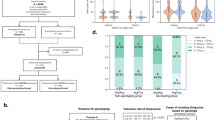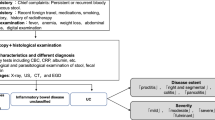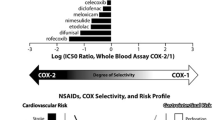Abstract
Purpose of Review
The increased use of biologic agents over the past two decades has led to a reappraisal of the role of the immunomodulators (thiopurines and methotrexate) in the treatment of inflammatory bowel disease. The purpose of this review is to summarize recent data on the use of thiopurines and methotrexate either as monotherapy or as part of combination therapy with biologic agents.
Recent Findings
Recent studies have addressed the need for concomitant immunomodulatory therapy in treatment-naïve patients starting anti-TNF-α therapy, the appropriate dose of the immunomodulator in this setting, the minimum duration of combination therapy, and the possible mechanisms by which immunomodulators enhance the effectiveness of anti-TNF-α agents. Little is known about the role of immunomodulators in combination with agents belonging to other classes of biologic therapies. Recent studies have shown that methotrexate is not effective in inducing or maintaining remission in ulcerative colitis. Finally, several studies have broadened our understanding of the infection and malignancy risks of the immunomodulators.
Summary
Immunomodulators continue to have a place in the treatment of inflammatory bowel disease. However, with the ever-increasing list of biologic agents, properly positioning the immunomodulators within the overall therapeutic scheme is a complicated task. In order to optimize outcomes, each patient requires an individualized approach, which takes into account risks, benefits, cost, alternatives, and patient preferences.
Similar content being viewed by others
References
Papers of particular interest, published recently, have been highlighted as: • Of importance •• Of major importance
Willoughby JM, Beckett J, Kumar PJ, Dawson AM. Controlled trial of azathioprine in Crohn’s disease. Lancet. 1971;2(7731):944–7.
Rosenberg JL, Levin B, Wall AJ, Kirsner JB. A controlled trial of azathioprine in Crohn’s disease. Am J Dig Dis. 1975;20(8):721–6.
Present DH, Korelitz BI, Wisch N, Glass JL, Sachar DB, Pasternack BS. Treatment of Crohn’s disease with 6-mercaptopurine. A long-term, randomized, double-blind study. N Engl J Med. 1980;302(18):981–7.
Feagan BG, Rochon J, Fedorak RN, et al; for the North American Crohn’s Study Group Investigators. Methotrexate for the treatment of Crohn’s disease. The North American Crohn’s Study Group Investigators. N Engl J Med 1995;332(5):292–7.
Colombel JF, Sandborn WJ, Reinisch W, et al; SONIC Study Group. Infliximab, azathioprine, or combination therapy for Crohn’s disease. N Engl J Med 2010;362(15):1383–95.
Panaccione R, Ghosh S, Middleton S, et al. Combination therapy with infliximab and azathioprine is superior to monotherapy with either agent in ulcerative colitis. Gastroenterology. 2014;146(2):392–400. e3
Matsumoto T, Motoya S, Watanabe K, et al; DIAMOND study group. Adalimumab monotherapy and a combination with azathioprine for Crohn’s disease: a prospective, randomized trial. J Crohns Colitis 2016;10(11):1259–66.
Thomas SS, Borazan N, Barroso N, Duan L, Taroumian S, Kretzmann B, et al. Comparative immunogenicity of TNF inhibitors: impact on clinical efficacy and tolerability in the management of autoimmune diseases. A systematic review and meta-analysis. BioDrugs. 2015;29(4):241–58.
Tiede I, Fritz G, Strand S, Poppe D, Dvorsky R, Strand D, et al. CD28-dependent Rac1 activation is the molecular target of azathioprine in primary human CD4+ T lymphocytes. J Clin Invest. 2003;111(8):1133–45.
Ben-Horin S, Goldstein I, Fudim E, Picard O, Yerushalmi Z, Barshack I, et al. Early preservation of effector functions followed by eventual T cell memory depletion: a model for the delayed onset of the effect of thiopurines. Gut. 2009;58(3):396–403.
Atreya I, Diall A, Dvorsky R, Atreya R, Henninger C, Grün M, et al. Designer thiopurine-analogues for optimised immunosuppression in inflammatory bowel diseases. J Crohns Colitis. 2016;10(10):1132–43.
Colombel JF, Adedokun OJ, Gasink C, et al. Higher levels of infliximab may alleviate the need of azathioprine comedication in the treatment of patients with Crohn’s disease: a SONIC post-hoc analysis [AGA abstract 134]. Gastroenterology. 2017;152(5)(suppl 1): S37–8.
• Bouguen G, Sninsky C, Tang KL, et al. Change in erythrocyte mean corpuscular volume during combination therapy with azathioprine and infliximab is associated with mucosal healing: a post hoc analysis from SONIC. Inflamm Bowel Dis. 2015;21(3):606-14. Data supporting the concept that AZA increases IFX concentrations but also has an independent anti-inflammatory effect in patients with CD.
Yarur AJ, Kubiliun MJ, Czul F, et al. Concentrations of 6-thioguanine nucleotide correlate with trough levels of infliximab in patients with inflammatory bowel disease on combination therapy. Clin Gastroenterol Hepatol. 2015;13(6):1118–24. e3
Roblin X, Boschetti G, Williet N, Nancey S, Marotte H, Berger A, et al. Azathioprine dose reduction in inflammatory bowel disease patients on combination therapy: an open-label, prospective and randomised clinical trial. Aliment Pharmacol Ther. 2017;46(2):142–9.
Van Assche G, Magdelaine-Beuzelin C, D’Haens G, et al. Withdrawal of immunosuppression in Crohn’s disease treated with scheduled infliximab maintenance: a randomized trial. Gastroenterology. 2008;134(7):1861–8.
Grossi V, Lerer T, Griffiths A, LeLeiko N, Cabrera J, Otley A, et al. Concomitant use of immunomodulators affects the durability of infliximab therapy in children with Crohn’s disease. Clin Gastroenterol Hepatol. 2015;13(10):1748–56.
Kierkuś J, Iwańczak B, Wegner A, Dadalski M, Grzybowska-Chlebowczyk U, Łazowska I, et al. Monotherapy with infliximab versus combination therapy in the maintenance of clinical remission in children with moderate to severe Crohn disease. J Pediatr Gastroenterol Nutr. 2015;60(5):580–5.
Feagan BG, Rutgeerts P, Sands BE, et al; GEMINI 1 Study Group. Vedolizumab as induction and maintenance therapy for ulcerative colitis. N Engl J Med 2013;369(8):699–710.
Sandborn WJ, Feagan BG, Rutgeerts P, et al; GEMINI 2 Study Group. Vedolizumab as induction and maintenance therapy for Crohn’s disease. N Engl J Med 2013;369(8):711–21.
Colombel JF, Loftus EV, Siegel CA, et al. Efficacy of vedolizumab with concomitant corticosteroid or immunomodulator use in patients with ulcerative colitis from GEMINI 1 [AGA abstract Sa1271]. Gastroenterology. 2015;148(4)(suppl 1);S277–8.
Eriksson C, Marsal J, Bergemalm D, Vigren L, Björk J, Eberhardson M, et al. Long-term effectiveness of vedolizumab in inflammatory bowel disease: a national study based on the Swedish National Quality Registry for inflammatory bowel disease (SWIBREG). Scand J Gastroenterol. 2017;52(6–7):722–9.
Amiot A, Grimaud JC, Peyrin-Biroulet L, et al. Observatory on Efficacy and of Vedolizumab in Patients With Inflammatory Bowel Disease Study Group; Groupe d’Etude Therapeutique des Affections Inflammatoires du tube Digestif. Effectiveness and safety of vedolizumab induction therapy for patients with inflammatory bowel disease. Clin Gastroenterol Hepatol. 2016;14(11):1593–601. e2
Shelton E, Allegretti JR, Stevens B, Lucci M, Khalili H, Nguyen DD, et al. Efficacy of vedolizumab as induction therapy in refractory IBD patients: a multicenter cohort. Inflamm Bowel Dis. 2015;21(12):2879–85.
Stallmach A, Langbein C, Atreya R, Bruns T, Dignass A, Ende K, et al. Vedolizumab provides clinical benefit over 1 year in patients with active inflammatory bowel disease—a prospective multicenter observational study. Aliment Pharmacol Ther. 2016;44(11–12):1199–212.
Dulai PS, Singh S, Jiang X, Peerani F, Narula N, Chaudrey K, et al. The real-world effectiveness and safety of vedolizumab for moderate-severe Crohn’s disease: results from the US VICTORY consortium. Am J Gastroenterol. 2016;111(8):1147–55.
Colombel JF, Sands BE, Rutgeerts P, Sandborn W, Danese S, D’Haens G, et al. The safety of vedolizumab for ulcerative colitis and Crohn’s disease. Gut. 2017;66(5):839–51.
Feagan BG, Sandborn WJ, Gasink C, et al; UNITI–IM-UNITI Study Group. Ustekinumab as induction and maintenance therapy for Crohn’s disease. N Engl J Med 2016;375(20):1946–60.
Adedokun OJ, Xu Z, Gasink C, Jacobstein D, Szapary P, Johanns J, et al. Pharmacokinetics and exposure response relationships of ustekinumab in patients with Crohn’s disease [published online ahead of print February 3, 2018]. Gastroenterology. 2018;154(6):1660–71.
Beaugerie L, Brousse N, Bouvier AM, et al; CESAME Study Group. Lymphoproliferative disorders in patients receiving thiopurines for inflammatory bowel disease: a prospective observational cohort study. Lancet 2009;374(9701):1617–25.
•• Lemaitre M, Kirchgesner J, Rudnichi A, et al. Association between use of thiopurines or tumor necrosis factor antagonists alone or in combination and risk of lymphoma in patients with inflammatory bowel disease. JAMA. 2017;318(17):1679–86. Study of the French National Health Insurance claim database that found that both anti-TNFα agents and thiopurines were associated with an increased risk of lymphoma.
Jones JL, Kaplan GG, Peyrin-Biroulet L, et al. Effects of concomitant immunomodulator therapy on efficacy and safety of anti-tumor necrosis factor therapy for Crohn’s disease: a meta-analysis of placebo-controlled trials. Clin Gastroenterol Hepatol. 2015;13(13):2233–40.e1–2;quiz e177–8.
Osterman MT, Haynes K, Delzell E, et al. Effectiveness and safety of immunomodulators with anti-tumor necrosis factor therapy in Crohn’s disease. Clin Gastroenterol Hepatol. 2015;13(7):1293–301. e5;quiz e70,e72
Osterman MT, Sandborn WJ, Colombel JF, Peyrin-Biroulet L, Robinson AM, Zhou Q, et al. Crohn’s disease activity and concomitant immunosuppressants affect the risk of serious and opportunistic infections in patients treated with adalimumab. Am J Gastroenterol. 2016;111(12):1806–15.
Sepulveda FE, de Saint Basile G. Hemophagocytic syndrome: primary forms and predisposing conditions. Curr Opin Immunol. 2017;49:20–6.
Henter JI, Horne A, Aricó M, Egeler RM, Filipovich AH, Imashuku S, et al. HLH-2004: diagnostic and therapeutic guidelines for hemophagocytic lymphohistiocytosis. Pediatr Blood Cancer. 2007;48(2):124–31.
Posthuma EF, Westendorp RG, van der Sluys VA, Kluin-Nelemans JC, Kluin PM, Lamers CB. Fatal infectious mononucleosis: a severe complication in the treatment of Crohn’s disease with azathioprine. Gut. 1995;36(2):311–3.
Garrido Serrano A, Pérez Martín F, Guerrero Igea FJ, Galbarro Muñoz J, Palomo GS. Fatal infectious mononucleosis during azathioprine treatment in Crohn’s disease [in Spanish]. Gastroenterol Hepatol. 2000;23(1):7–8.
N’guyen Y, Andreoletti L, Patey M, et al. Fatal Epstein-Barr virus primo infection in a 25-year-old man treated with azathioprine for Crohn’s disease. J Clin Microbiol. 2009;47(4):1252–4.
Biank VF, Sheth MK, Talano J, Margolis D, Simpson P, Kugathasan S, et al. Association of Crohn’s disease, thiopurines, and primary Epstein-Barr virus infection with hemophagocytic lymphohistiocytosis. J Pediatr. 2011;159(5):808–12.
Sijpkens YW, Allaart CF, Thompson J, et al. Fever and progressive pancytopenia in a 20-year-old woman with Crohn’s disease. Ann Hematol. 1996;72(4):286–90.
Babu TG, Boctor D, Davey A, Bond MC, Jacobson K. Cytomegalovirus-associated hemophagocytic syndrome in a child with Crohn disease receiving azathioprine. J Pediatr Gastroenterol Nutr. 2004;39(4):418–21.
van Langenberg DR, Morrison G, Foley A, Buttigieg RJ, Gibson PR. Cytomegalovirus disease, haemophagocytic syndrome, immunosuppression in patients with IBD: “a cocktail best avoided, not stirred.”. J Crohns Colitis. 2011;5(5):469–72.
N’Guyen Y, Baumard S, Salmon JH, et al. Cytomegalovirus associated hemophagocytic lymphohistiocytosis in patients suffering from Crohn’s disease treated by azathioprine: a series of four cases. Inflamm Bowel Dis. 2011;17(9):E116–8.
Fitzgerald MP, Armstrong L, Hague R, Russell RK. A case of EBV driven haemophagocytic lymphohistiocytosis complicating a teenage Crohn’s disease patient on azathioprine, successfully treated with rituximab. J Crohns Colitis. 2013;7(4):314–7.
Mikolajczyk AE, Rubin DT, McConville JF. A diagnosis that eats at you. Gastroenterology. 2013;145(2):289–489.
Kohara MM, Blum RN. Cytomegalovirus ileitis and hemophagocytic syndrome associated with use of anti-tumor necrosis factor-alpha antibody. Clin Infect Dis. 2006;42(5):733–4.
Francolla KA, Altman A, Sylvester FA. Hemophagocytic syndrome in an adolescent with Crohn disease receiving azathioprine and infliximab. J Pediatr Gastroenterol Nutr. 2008;47(2):193–5.
Miquel T, Bonnet DP, Leport J, Longuet P, Bletry O, Leport C. Hemophagocytic syndrome in the course of Crohn’s disease: possible association with cytomegalovirus infection. Am J Gastroenterol. 2009;104(1):252.
Côté-Daigneault J, Bernard EJ. Hepatosplenic lymphoma presenting initially as hemophagocytic syndrome in a 21-year-old man with Crohn’s disease: a case report and literature review. Can J Gastroenterol. 2011;25(8):417–8.
Ma C, Fedorak RN, Halloran BP. Recurrent fevers after infliximab therapy for ulcerative colitis. Gastroenterology. 2016;150(1):e1–2. https://doi.org/10.1053/j.gastro.2015.04.048.
Thompson G, Pepperell D, Lawrence I, McGettigan BD. Crohn’s disease complicated by Epstein-Barr virus-driven haemophagocytic lymphohistiocytosis successfully treated with rituximab. BMJ Case Rep. 2017;2017:pii:bcr2016218578. doi: https://doi.org/10.1136/bcr-2016-218578.
Salado CT, Gallego AG, Carnerero EL, de la Cruz Ramírez D, Justiniano JMH, Galán JLM, et al. Hemophagocytic lymphohistiocytosis in Crohn’s disease associated with primary infection by Epstein-Barr virus. Inflamm Bowel Dis. 2011;17(11):E143–4.
James DG, Stone CD, Wang HL, Stenson WF. Reactive hemophagocytic syndrome complicating the treatment of inflammatory bowel disease. Inflamm Bowel Dis. 2006;12(7):573–80.
Reiner AP, Spivak JL. Hematophagic histiocytosis. A report of 23 new patients and a review of the literature. Medicine (Baltimore). 1988;67(6):369–88.
Dao LN, He R. Hemophagocytic lymphohistiocytosis secondary to iatrogenic disseminated histoplasmosis. Blood. 2016;127(22):2775.
Kim YC, Kim GM, Lee HS, et al. A case of hemophagocytic syndrome in an ulcerative colitis patient [in Korean]. Korean J Gastroenterol. 2010;56(1):45–8.
•• Hyams JS, Dubinsky MC, Baldassano RN, et al. Infliximab is not associated with increased risk of malignancy or hemophagocytic lymphohistiocytosis in pediatric patients with inflammatory bowel disease. Gastroenterology. 2017;152(8):1901–14.e3. Large pediatric study estimated the risk of HLH among thiopurine patients at 0.29 per 10,000 patient-years (95% CI, 0.09–0.68).
Feagan BG, Fedorak RN, Irvine EJ, Wild G, Sutherland L, Steinhart AH, et al. A comparison of methotrexate with placebo for the maintenance of remission in Crohn’s disease. North American Crohn’s Study Group Investigators. N Engl J Med. 2000;342(22):1627–32.
Chande N, Wang Y, MacDonald JK, McDonald JW. Methotrexate for induction of remission in ulcerative colitis. Cochrane Database Syst Rev. 2014;8:CD006618. https://doi.org/10.1002/14651858.CD006618.pub3.
Oren R, Arber N, Odes S, Moshkowitz M, Keter D, Pomeranz I, et al. Methotrexate in chronic active ulcerative colitis: a double-blind, randomized, Israeli multicenter trial. Gastroenterology. 1996;110(5):1416–21.
Maté-Jiménez J, Hermida C, Cantero-Perona J, Moreno-Otero R. 6-mercaptopurine or methotrexate added to prednisone induces and maintains remission in steroid-dependent inflammatory bowel disease. Eur J Gastroenterol Hepatol. 2000;12(11):1227–33.
•• Carbonnel F, Colombel JF, Filippi J, et al; European Crohn’s and Colitis Organisation and the Groupe d’Étude Thérapeutique des Affections Inflammatoires Digestives. Methotrexate is not superior to placebo for inducing steroid-free remission, but induces steroid-free clinical remission in a larger proportion of patients with ulcerative colitis. Gastroenterology. 2016;150(2):380–8.e4. Randomized, placebo-controlled trial showing that methotrexate was not effective in inducing remission in UC.
•• Herfarth HH, Barnes EL, Jackson S, et al; MERIT-UC study group. Methotrexate is not superior to placebo in maintaining remission in patients with ulcerative colitis: results from the MERIT-UC study [ECCO abstract P390]. J Crohns Colitis. 2018;12(suppl 1):S300–1. Randomized, placebo-controlled trial showing that methotrexate was not effective in maintaining remission in UC.
Author information
Authors and Affiliations
Corresponding author
Ethics declarations
Conflict of Interest
The authors declare that they have no conflict of interest.
Human and Animal Rights and Informed Consent
This article does not contain any studies with human or animal subjects performed by any of the authors.
Additional information
This article is part of the Topical Collection on Inflammatory Bowel Disease
Rights and permissions
About this article
Cite this article
Johnson, C.M., Dassopoulos, T. Update on the Use of Thiopurines and Methotrexate in Inflammatory Bowel Disease. Curr Gastroenterol Rep 20, 53 (2018). https://doi.org/10.1007/s11894-018-0658-1
Published:
DOI: https://doi.org/10.1007/s11894-018-0658-1




